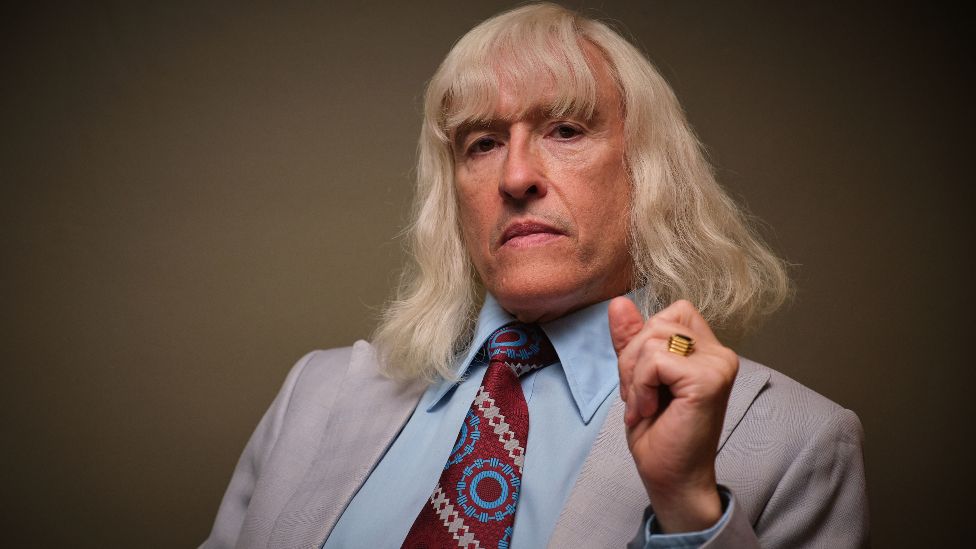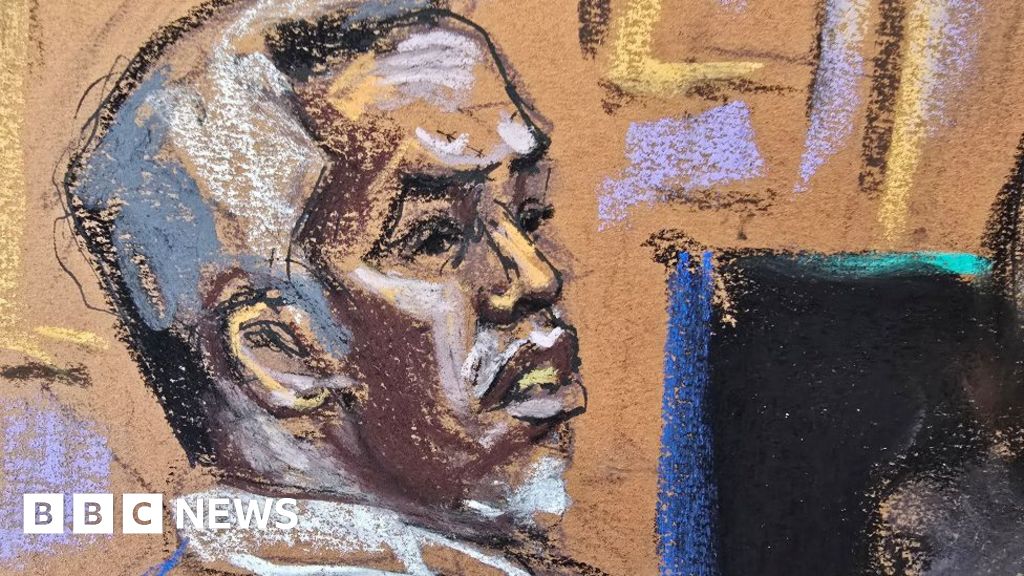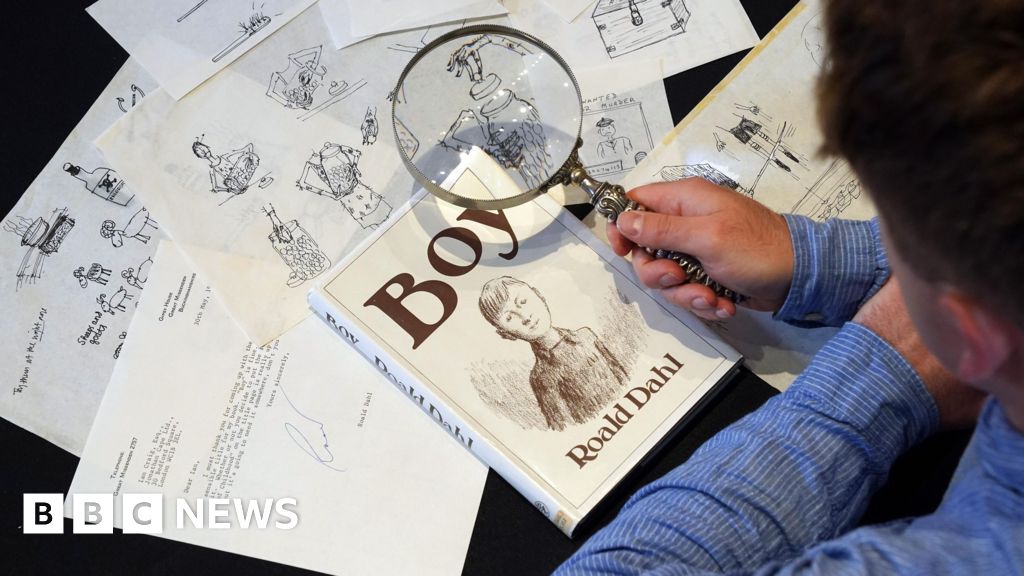ARTICLE AD BOX

Coogan said he considered himself one of a handful of people who could portray Savile
By Steven McIntosh
Entertainment reporter
A new TV drama sees actor Steve Coogan portray one of the most notorious paedophiles and sex offenders in British criminal history: Jimmy Savile.
The TV presenter and radio DJ, who died in 2011 aged 84, enjoyed a successful career over several decades. At the time, he was known for his eccentric personality and charitable fundraising. It was only after his death that the full extent of his sexual abuse became clear.
Throughout his life, Savile had utilised his celebrity status to prey on hundreds of people, male and female, many of them minors. Rumours and allegations about his behaviour followed him for decades, but when confronted he would deny and deflect, helping him to avoid accountability and punishment.
BBC One's The Reckoning follows Savile's career - from DJ-ing in music halls in the north of England in the early 1960s to hosting hugely successful shows such as Top of the Pops and Jim'll Fix It - and examines why he never had to face consequences for his actions.
It is a complex and challenging story to tell as a TV drama. Coogan, best known for roles such as Alan Partridge and films including Philomena, admits he felt "great trepidation" about the possible pitfalls.
"I felt like there's probably a handful of people in the country who could who could play the part, and I did consider myself one of them," the actor says.
"It wasn't enjoyable, it was a professional challenge that I wanted to take on... I knew there was the potential for catastrophic failure if you get it wrong, but that's not a reason not to do it."
Jimmy Savile, pictured presenting Top Of The Pops in 1975, abused hundreds of young people throughout his life
Savile's crimes are a source of great shame for the institutions where he worked or volunteered, including the BBC and hospitals such as Broadmoor, Stoke Mandeville and Leeds General Infirmary. Many of his assaults took place on their premises.
Several of his victims attempted to raise the alarm about his abuse. But Savile was a powerful man, with connections to even more powerful people - including prime ministers and members of the royal family. He was intimidating, difficult to pin down, and evasive when questioned.
Coogan says he and the producers were aware the script would "have to answer the question everyone has" - which is why they are making the drama in the first place. "And I felt comfortable that it was being made for the right reasons," he adds.
He says the advantage of a drama over documentaries is being able to get "under the skin" of Savile. "And the reason that's a good thing to do is because to bring him to life again is to learn about how these things happen. To stop that happening again."
To understand how such abuse can happen, Coogan says: "You have to show the things that perhaps initially seem counterintuitive. He was charismatic, undoubtedly, because that was part of the Trojan horse that he created, to go about his sexual assaults.
"He created, over 30 years, quite an elaborate machine... which served him very well. And the court jester character that he created was his armour. It was very difficult, even for very reputable journalists, to pierce that armour."
Andrew Neil and Louis Theroux were among the reporters who tried to crack Savile's exterior while he was alive - but interviewing the entertainer about rumours that swirled around him was like trying to nail jelly to a wall.
The drama shows how Savile committed abuse at the BBC and in the hospitals he volunteered at
However, another journalist came close. Dan Davies interviewed Savile regularly over seven years for a biography and their recorded conversations are dramatised in The Reckoning. It's a helpful interrogatory narrative device which allows the show to jump back and forward in time, as Savile reflects on his life and career.
Davies felt he was being prevented from seeing the real Savile, and regularly challenged him about the areas of his life he tried to obscure. Their relationship is seen coming under strain in the series as Savile becomes angry about those lines of inquiry.
The book was not completed while Savile was alive. But when victims came forward following his death, Davies continued his research, interviewing them, too. The book he eventually published in 2014 was titled In Plain Sight: The Life and Lies of Jimmy Savile.
Earlier in his career, Coogan had done comedic impersonations of Savile. But in The Reckoning, his performance is far more sinister. While his process of getting into character was straightforward, he acknowledges the weight of responsibility.
"I've got quite a good ear, and as an actor I didn't really treat Jimmy Savile differently from any other role," he explains.
"I'm a professional being hired to do a job, and that means to not do something which has any kind of caricature or comedic content, or to render him some pantomime villain, which would be a disservice to the survivors and victims."
Jimmy Savile presented Jim'll Fix It on the BBC for almost two decades
A review conducted by Dame Janet Smith in 2016 identified 72 victims of Savile in connection with his work at the BBC, including eight who were raped. Eleven of his victims were younger than 12 years old.
Wisely, producers have also included testimony from some of Savile's real-life victims in the series. All four episodes begin with footage of Susan, Kevin, Sam and Darien, who waived their right to anonymity, recounting their experiences and the lifelong impact of his assaults.
If you are affected by any of the issues in this article you can find details of organisations that can help via the BBC Action line.
Although it is airing on the BBC, The Reckoning has been produced by ITV Studios.
That isn't unusual. However, in this case, it adds important and valuable distance, as the BBC is one step removed from the editorial process.
"I thought was important that they should have the editorial freedom to tell the story they wanted," says the BBC's chief content officer Charlotte Moore. "I said, 'There are no boundaries to where you should go, you need to tell that story'."
Savile is seen always seeking the approval of his mother (played by Gemma Jones), who he refers to as the duchess
However, at a press launch earlier this week, Moore and the panel were robustly challenged by journalists who felt the drama was not critical enough of the BBC.
Chief among their complaints was that the series does not depict the shelving of a Newsnight investigation into Savile in 2011, weeks before the BBC was due to broadcast a posthumous tribute to him.
Instead, the debacle is referenced in a post-script as the four-part series concludes.
Moore countered that the BBC "features all the way through" the drama, which depicts how many of those in charge "failed to listen to the rumours, failed to ask further questions, failed to do anything about it".
"I don't think we shy away from the BBC's part in this," she continued. "I think it's very clear that [there were] people who worked closely with him, who supported his promotion from one show to another.
"It's very clear throughout that there were people saying 'We're not sure this man should be given these roles', and yet we show that, despite that, he continues to be at the BBC - going from Top of the Pops to Jim'll Fix It to a religious programme. So I think it's very clear that no-one was asking the right questions to get the right answers."
Executive producer Jeff Pope agreed: "There wasn't any 'let's not put that in because it's awkward,'. It just wasn't the story we were telling. The purpose of the piece is: 'how did he do what he did, why did we let him do it'?"
Coogan has said making Savile a "pantomime villain" would be a disservice to his victims
The script was written by Neil McKay, who previously worked on dramas about serial killer Stephen Port and the Moors murderers Ian Brady and Myra Hindley.
"There's no greater story which serves as a warning to people about sexual offending and groomers," McKay reflects.
While Savile's assaults are not depicted on screen, the moments leading up to them are. A menacing soundtrack helps the drama maintain a constant air of threat.
The traumatised victims are shown being largely dismissed or not taken seriously. "It's just Jimmy being Jimmy," one character responds when concerns are raised.
McKay notes that few people had heard the term "grooming" when Savile was in his prime. "We have now, a bit, but not enough," the writer suggests. "And Savile's story is the ultimate grooming story."
Many of the conversations in the series are imagined - including some of those which see Savile trying to reconcile his actions with his Catholic faith.
Others are dramatisations of real-life events, such as his cameo on Celebrity Big Brother in 2006, and the police interview which followed, after his appearance prompted some victims to come forward.
The fact Savile never had to face the consequences of his actions is what so many find infuriating about his case. But by bringing it to the screen, many hope it will prevent future cases.
Speaking for many as the series concludes, one real-life victim pleads: "Please don't let this ever happen again."
All four episodes of The Reckoning are released on BBC iPlayer on Monday (9 October). The series will also be broadcast on BBC One on Monday and Tuesday nights at 21:00 BST for the next two weeks.

 1 year ago
40
1 year ago
40








 English (US) ·
English (US) ·